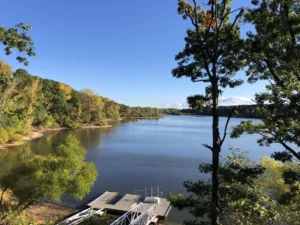Key Takeaways
- Every Sale Requires an FFL Transfer: No matter how you’re selling—online, to a friend, or at a local show—Colorado law says all firearm sales must go through a federally licensed firearms dealer (FFL). That includes a background check for the buyer. It’s non-negotiable.
- Presentation Matters More Than You Think: A well-cleaned firearm, sharp photos, and a detailed, honest listing go a long way. Tell the gun’s story, set a price that makes sense, and you’ll stand out from the crowd.
- Pick the Right Platform and Seal the Deal the Right Way: Whether you go with GunBroker, a trusted forum, or a local shop like Luxus Capital, the key is working with an FFL to make sure every “i” is dotted and every “t” is crossed.
Selling a gun online sounds complicated, doesn’t it? Background checks, legal transfers, a maze of websites—it’s easy to feel overwhelmed, especially if it’s your first time.
But don’t worry. We’re going to walk through this one step at a time.
Whether you’re a collector downsizing your safe, someone inheriting a firearm you don’t plan to keep, or just ready to move on to your next piece, this guide has your back. If you’re based in Colorado Springs, Colorado, you’ll get exactly what you need to make your sale smooth, legal, and stress-free.
First Things First: What Are the Gun Laws in Colorado?
Let’s not sugarcoat it—Colorado doesn’t play around when it comes to firearm sales. It’s not the Wild West anymore.
While you can absolutely sell a gun online, there are rules, and they matter.
All Sales Go Through a Dealer
It doesn’t matter if you’re selling to a stranger or your cousin—every single firearm sale in Colorado has to go through an FFL. That’s the law. The dealer runs a background check on the buyer, makes sure the paperwork is in order, and keeps the process clean and legal.
And yes, this applies even to private, one-on-one sales. Even if you’re not shipping the gun across the country, you’ll need to loop in a licensed dealer. Think of them as the referee—keeping everything fair, above board, and legally sound.
It’s smart to get to know your local FFL. Once you’ve found a reliable shop (there are plenty in Colorado Springs), you’ve got a go-to resource for any future sales or transfers.
Age Limits—They Matter
Here’s a quick rule of thumb:
- Selling a handgun? The buyer needs to be 21.
- Long gun (like a rifle or shotgun)? They can be 18 or older.
Always ask for ID. Always. If something feels off, don’t proceed. Verifying someone’s age protects you legally—and frankly, just makes good sense.
Take a photo of the ID or jot down the details for your own records. It’s not just about trust; it’s about covering your bases.
Background Checks Are Mandatory
Colorado law says a background check is required for all firearm sales—no exceptions. This holds true whether you’re selling online, in person, or even at a gun show.
That’s where the FFL dealer comes in. They handle the background check for you, using the NICS (National Instant Criminal Background Check System). It typically takes just a few minutes, but it ensures the buyer is legally allowed to own a firearm.
Do background checks occasionally hit a snag? Yes, delays happen. But knowing how the process works lets you set clear expectations with your buyer—and saves you both some frustration.
Where Do You Sell? Let’s Talk Platforms
Colorado Springs has a strong gun culture, and the internet offers a ton of ways to connect with potential buyers. So, where should you list your firearm?
Let’s look at your options.
Online Marketplaces
Websites like GunBroker, Armslist, and GunsAmerica are built for firearm sales. Think of them like eBay for guns.
- GunBroker is arguably the most well-known and has an auction-style setup, which can sometimes drive up the price.
- Armslist is more classified-style, like Craigslist, but for guns.
These platforms are ideal if you want to reach a national audience. That said, you’ll still need to send the gun to an FFL on the buyer’s end—so be ready for shipping logistics.
And be mindful of fees. Some platforms charge for listings, others take a cut of the final price. Do a little homework and factor those costs into your price.
Local Shops
Want a quicker, cleaner route? Sell directly to a local gun shop.
Shops like Luxus Capital in Colorado Springs are always on the lookout for quality firearms. They may buy it outright, or take it on consignment (meaning they’ll sell it for you and keep a percentage).
Pros?
- No shipping.
- No marketing.
- No, answering dozens of questions from tire-kickers.
The trade-off? You might get a bit less money, but in return, you get a lot less hassle.
Forums & Social Media (Yes, But…)
Places like Reddit’s gun forums or local Facebook groups (where allowed) are filled with firearm enthusiasts. These communities often have buy/sell threads and can be great for reaching a niche audience.
But tread carefully. Many platforms have strict rules—or outright bans—on gun sales. Know the rules before you post. And again, the actual transfer still has to go through an FFL.
Even if you find your buyer in a forum, the sale doesn’t end there.
Make It Shine: Preparing Your Gun for Sale
Let’s say you’ve picked your platform. Great. Now it’s time to get your gun sale-ready.
Give It a Good Clean
Think of this like selling a used car. A clean car sells faster—and so does a clean firearm.
Take the time to wipe it down, clean the barrel, and remove dust or grime. It’s a small step that shows pride of ownership and can help justify your asking price.
If you’re not sure how to safely clean your firearm, most local gun shops offer basic cleaning services for a reasonable fee. It’s worth considering.
Snap Some Photos (Good Ones!)
This part can make or break your listing.
Take well-lit, clear photos from several angles. Show the barrel, grip, sights, markings, and any accessories. Highlight what makes your firearm special—whether it’s a pristine finish, custom grips, or vintage appeal.
Avoid cluttered backgrounds. A clean table or neutral surface is all you need.
Include shots of the serial number (blur it slightly for privacy in public listings if you’d like) and any original packaging or documentation.
Think like a buyer—what would you want to see before committing?
Tell Its Story
Here’s something sellers often overlook: the gun’s history.
- Where did it come from?
- Has it been used heavily, or is it a safe queen?
- Any unique modifications, like trigger work or sight upgrades?
If it’s been in your family for decades, say so. If it’s only been to the range once, mention that. Buyers love a good backstory—it makes your listing feel real, not just transactional.
Transparency builds trust. And trust sells.
Writing the Listing: Don’t Skip the Details
When you’re ready to create your listing, the more helpful and honest you can be, the better.
Basic Info First
- Make
- Model
- Caliber
- Barrel length
- Condition (be honest—call out any nicks or wear)
- Included accessories (case, magazines, optics, etc.)
Be Clear on Pricing and Payments
Look up current market values before you settle on a price. Try GunBroker’s past auctions or Blue Book of Gun Values as references.
Also, tell buyers how you want to be paid:
- Bank transfer?
- Cash at an FFL?
- Through the platform’s built-in system?
Avoid payment methods that feel shady or untraceable—Venmo and CashApp aren’t designed for gun sales and could lead to complications.
Make Yourself Reachable
Include an email address or phone number where buyers can reach you with questions. Respond promptly—it builds credibility and keeps your listing hot.
If you’re concerned about privacy, use a dedicated email or a temporary phone number from an app like Google Voice.
Sealing the Deal: Final Steps
So, you’ve got a buyer. They love the gun. They’re ready to go. What now?
Set Up the Transfer
Pick an FFL dealer you trust—preferably one with good online reviews or personal recommendations. Reach out and schedule a time when both you and the buyer can meet, or arrange shipping if they’re out of town.
If the buyer’s in another state, you’ll ship the gun to their local FFL. Use a carrier like UPS or FedEx (not USPS) and follow their specific rules for shipping firearms.
Meet, Sign, Done
At the FFL, both parties present ID. The dealer runs the background check on the buyer, fills out the necessary paperwork, and logs the transfer.
Once it’s approved—and only once—it’s officially a done deal.
Ask for a copy of the transfer paperwork for your own records. Keep it somewhere safe. It’s proof that the gun legally changed hands.
Final Thoughts
Selling your gun online in Colorado Springs doesn’t have to be a headache.
Yes, there are rules. Yes, there’s paperwork. But once you understand the flow—prep the gun, list it smartly, and use a licensed dealer—it all falls into place.
Just remember: your goal isn’t just to make a sale. It’s to make a responsible one.
And hey, if you do it right, you might even enjoy the process.
Frequently Asked Questions
Yes, you can legally sell a firearm online in Colorado. Still, all transfers—whether in person or online—must be processed through a federally licensed firearms dealer (FFL), who will perform a background check on the buyer.
Not necessarily. However, the firearm must be physically transferred at an FFL location, where both the buyer and the seller may be required to appear, depending on the type of sale and transfer method used.
Yes. Colorado law requires background checks for all firearm transfers, including those conducted privately and online. These checks must be performed by a Federal Firearms Licensee (FFL).
Buyers must be at least 21 years old to purchase a handgun and 18 years old to buy a long gun (rifle or shotgun).
Popular platforms include GunBroker, Armslist, and firearms-focused forums. You can also sell directly to local shops, such as Luxus Capital, which may offer outright purchases or consignment sales.









